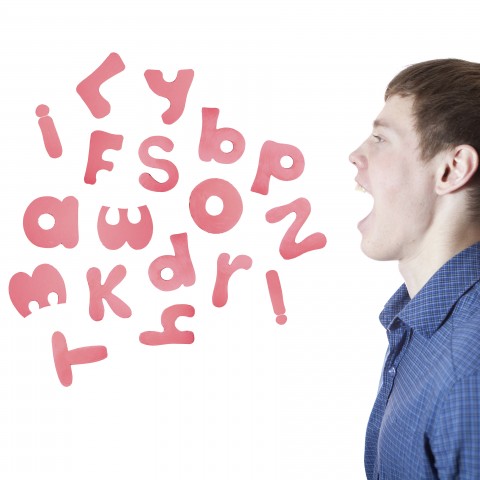
The leap between the beginner and intermediate levels is exciting. “Suddenly,” you’re able to not only order food without sweating but also casually compliment the waiter on the menu selection; you’re at ease when a native speaker approaches you unexpectedly; maybe you’ve even started dreaming in Czech. (This is a big deal and a sign that you’re actually THINKING in Czech––the language has become deeply embedded in your brain, and you’re on your way to fluency!)
Starting something from scratch is always hard, and you’ve made it! Now, you just need to expand your vocabulary, learn some useful intermediate Czech phrases, speak and listen a lot, and try to think in Czech.
From now on, the road is going to be way less bumpy. I promise. However, a lot of people get stuck at this intermediate level of proficiency because they don’t know how to deal with the challenges this cozy middle brings. In addition to lacking confidence (please, don’t do this), they don’t deal with their lingering grammar issues and often struggle with insufficient vocabulary. This leads to difficulty expressing more complex (and interesting) thoughts.
This is why you need to power through the “transition phase” and tackle these matters before they overwhelm you.
In this article, you’ll learn 30+ Czech phrases for intermediate-level proficiency. I did my best to include phrases that might come in handy if you’re visiting/living in the Czech Republic. Use them as a baseline and keep adding to them; feel free to switch out words and make them interesting TO YOU.
Fun fact: You’re more likely to remember things that you find fun, interesting, outrageous, or ridiculous. I stand by this—I’m learning Norwegian, and even though I still struggle with “simple stuff,” I did learn the sentence “In just seven days, I can make you a man,” within seconds.
Let’s begin!

At the intermediate level, you’re able to get creative with the language.
 Table of Contents
Table of Contents
- Once Upon a Time: Talking About Past Events
- You Change Your Mind Like a Girl Changes Clothes: Making and Changing Plans
- Because I Said So: Explaining and Listing Reasons
- The Best Schnitzel I’ve Ever Had: Recommendations and Complaints
- When “Huh” Won’t Do: Reaction Phrases for Everyday Conversations
- Yes, Ma’am: Etiquette Phrases for Social and Business Settings
- How CzechClass101.com Helps You Learn Czech in a Fun Way
1. Once Upon a Time: Talking About Past Events
These are phrases that you would use to tell your friends and coworkers about an interesting event or memorable experience (verbs in the past tense). For all of the examples throughout the article, the verbs are conjugated as masculine/feminine.
- Včera na párty jsme se skvěle bavili.
“We had fun at the party last night.”
- Tuhle práci jsem začal/a dělat před třemi lety.
“I started this job three years ago.”
- To byl nejhorší den mého života.
“That was the worst day of my life.”
- Míval/a jsem štěně jménem Alík.
“I used to have a puppy named Alík.”
- Pivo mi nikdy nechutnalo.
“I’ve never liked beer.”
- Po vysoké jsem rok cestoval/a.
“I traveled for a year after college.”
- Byla to skvělá zkušenost.
“It was a great experience.”
- Hodně mi to dalo.
“It gave me a lot.” (As in: “I learned a lot.”)

Learning a new language will encourage you to live in the moment—because you won’t be able to conjugate any other verb tense for a while.
2. You Change Your Mind Like a Girl Changes Clothes: Making and Changing Plans
A.k.a. explanations, excuses, and polite requests. (Verbs in the future tense.)
You will use these intermediate conversational Czech phrases when making and changing plans in everyday convos and in business settings, in person and through text messages/emails.
- Máš tenhle víkend čas?
“Do you have time this weekend?”
- A co české jídlo?
“How about Czech food?”
- Můžu přivést přítele/přítelkyni?
“Can I bring my boyfriend/girlfriend?”
- Chci se zeptat, jestli to můžeme nechat na jindy.
“I was wondering if we could reschedule.”
- Pojďme se příští úterý sejít na Zoomu a probrat detaily.
“Let’s have a Zoom meeting next Tuesday to discuss the details.”
- Zjistil/a jsem, že se mi to vůbec nehodí, musíme to odložit.
“I found out it’s not a good time for me at all; we need to push it back.”
- Pošli mi ty termíny a domluvíme se po emailu.
“Send me the dates, and we’ll figure it out over email.”
- Bude to muset změnit na poslední chvíli.
“He/she is going to have to make some last-minute changes.”
3. Because I Said So: Explaining and Listing Reasons
Learning these intermediate Czech phrases will help you master the usage of conjunctions, particularly for making explanations.
- Udělal/a jsem to, protože jsem neměl/a jinou možnost.
“I did that because I had no choice.”
- Podle mě je to tak správně. Proto to dělám.
“In my opinion (literally ‘according to me’), it’s the right thing. That’s why I am doing it.”
- Zvolil/a jsem to ze tří důvodů. Zaprvé je to finančně dostupné, za druhé je to jednoduché a v neposlední řadě to skvěle vypadá.
“I chose it for three reasons. First of all, it’s affordable; secondly, it’s simple; and last but not least, it looks amazing.”
- Z toho důvodu už se nespoléhám jen na ni a vždycky mám někoho v záloze.
“For that reason, I don’t rely just on her anymore and always have someone as a backup.”
- Připadalo mi to jako brilantní plán, jenomže zbytek týmu to rezolutně zamítl.
“It seemed like a brilliant plan to me; however, the rest of the team rejected it resolutely.”

I would love to go shopping with you, but I’m busy.
4. The Best Schnitzel I’ve Ever Had: Recommendations and Complaints
Here are some intermediate phrases for Czech conversations that you can use to recommend (or not recommend) something to your friends. These are also useful for writing a review for a product or service.
- Měl/a bys to ochutnat, lepší ___ jsem nikdy neměl/a.
“You should try this. It’s the best ___ I’ve ever had.”
- Pobyt v tomto hotelu jsme si velice užili. Určitě bychom tam bydleli znovu.
“We loved staying at this hotel. I would definitely go back again.”
- Příšerný zákaznický servis. Nedoporučuji.
“Terrible customer service. Would not recommend.”
- Zboží dorazilo pozdě a vypadalo jinak než na fotkách.
“The item arrived late and didn’t look as advertised (as in the pictures).”
- Tristní kvalita, nedostatečná komunikace, neuctivé chování.
“Regrettable quality, insufficient communication, disrespectful behavior.”
- Požádali jsme o vrácení peněz.
“We’ve asked for a refund.”
- Vynikající služby, vstřícný a přátelský personál.
“Superior service, accommodating and professional staff.”
- Rozhodně doporučuji.
“Highly recommend.”

Highly recommend it!
5. When “Huh” Won’t Do: Reaction Phrases for Everyday Conversations
Now let’s add some handy reaction and response phrases to your intermediate Czech vocabulary.
Here’s a little fictional dialogue:
A: Včera jsme se na večírku dobře bavili.
“We had fun at the party last night.”
B: Super! Jsem rád, že jste to stihli.
“Great! I’m glad you made it.”
A: Ale taky to byla nejhorší noc mého života.
“But it was also the worst night of my life.”
B: Děláš si srandu? Proč?
“Are you kidding? Why?”
A: Nedělám. Řekněme, že mi pivo nikdy nechutnalo.
“I’m not. Let’s just say I’ve never liked beer.”
B: Páni! Jsi v pohodě?
“Oh my goodness! Are you okay?”
A: Vlastně je mi skvěle. Byl to fantastický zážitek, hodně mi to dalo. Teď jsem expert na české pivo.
“I feel fantastic, actually. It was a great experience; I learned a lot. Now I’m a Czech beer expert.”
B: To je super, mohlo to dopadnout hůř.
“That’s cool, could have ended up way worse.”
A: Jo. Co tě nezabije, to tě posílí.
“Yeah, what doesn’t kill you makes you stronger.”
6. Yes, Ma’am: Etiquette Phrases for Social and Business Settings
- Dobrou chuť.
“Bon appetit.”
- Vítáme vás/Vítejte v našem obchodě.
“Welcome to our store.”
- Udělejte si pohodlí, prosím.
“Please make yourself at home.”
- V případě dotazů se na mě prosím obraťte.
“Please let me know if you have any questions.”
- Těším se na vaši/tvoji odpověď.
“I look forward to hearing from you.” (plural/singular)
- Šťastnou cestu.
“Have a safe trip!”
- Děkujeme za pozvání.
“Thank you for having us.”
- Přeji vám příjemný pobyt.
“Have a pleasant stay.” / “I wish you a pleasant stay.”

Posaďte se, prosím. – “Have a seat, please.”
7. How CzechClass101.com Helps You Learn Czech in a Fun Way
That’s it, guys! I hope you enjoyed this article and learned something new!
If you’re taking your Czech studies seriously, you might grab a Czech grammar book or learn online (the latter of which is way more convenient). Learning a new skill has never been easier. Just grab your phone and get to work!
CzechClass101.com makes learning Czech easy, exciting, and fun. With us, it’s not about endless memorizing or thick textbooks. Learn Czech the better way—with us, you’ll make progress faster than you could imagine! What can you find here?
- English-to-Czech translation and pronunciation tips/tricks
- Over 630 audio and video lessons
- Vocabulary learning tools
- Spaced repetition flashcards
- Detailed PDF lesson notes
Sign up now—it’s free!
One last thing: Let us know in the comments if this article helped you and if you feel inspired to continue learning Czech now! We love hearing from you.










